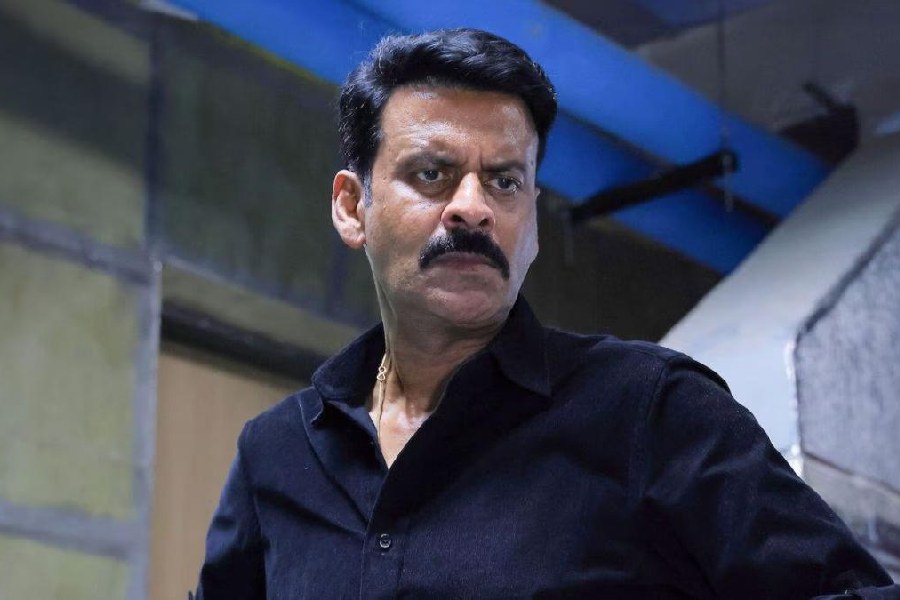 |
| Nrisingha Prasad Bhaduri (left) with Arindam Chakrabarti at the launch. Picture by Bishwarup Dutta |
The most distinctive feature of Kaliyug is the traffic problem, philosopher Arindam Chakrabarti believes. The eminent scholar, who teaches at the University of Hawaii at Manoa, was speaking at the launch of Nrisingha Prasad Bhaduri’s book, Kaliyug, at the Oxford Bookstore on Friday.
Published by Gangchil, the book collects articles on various aspects of the classical past, on texts like the Mahabharata, Ramayana and the Puranas. Bhaduri’s approach, always innovative and stimulating, combines this backward glance with a searching look into the present. Since literature mirrors life, the ancient texts become records of a fluid and evolving society. Even as these literary journeys take us back to distant times we also become intensely aware of our times, the ever-flowing “present” or Kaliyug.
Chakrabarti considers Bhaduri’s lament for lost values significant. For a writer responsible for making Sanskrit literature not just modern but also post-modern, this mourning for a golden past is somewhat odd. Then there is also a lyrical aspect to this style. Such a lament involves, Chakrabarti explained, acknowledging one’s relationship with time. Not simply the awareness of the passage of time, but rather of one’s own transience. Time does not pass, it is always there, but human beings pass away.
Chakrabarti elaborated on this theme beautifully with charming anecdotes, betraying a deadpan sense of humour even in the course of sophisticated philosophical reasoning (“Is Kalikata somehow related to Kaliyug?” he wondered at one point. “After all, the Sanskrit root, kali (related to kalaha or conflict), is common to both!”
A hi-tech, ever-busy existence does not lead to gaining time, but involves inescapable duplication of activities. Until an event (say, getting on a bus) is turned into discourse (relayed on a mobile phone — “Now I’m going to get on a bus”), it doesn’t become real. Technology eats into time. As a sensible clerk had once told Chakrabarti at the end of an interminable queue in a bank in Behala, “Khata lekhar din aar nei, ekhon computer eshe gechhe, somoy to lagbei!” (“Gone are the days of logbook entries. Things are bound to take longer in this computer age!”)
Chakrabarti hopes that Bhaduri’s meditations on Kaliyug would remind the readers about the importance of taking time out of life. Quite appropriately, he ended his talk with a greeting to the audience, which the philosopher, Ludwig Wittgenstein, loved to tell his friends: “Take your time.”










